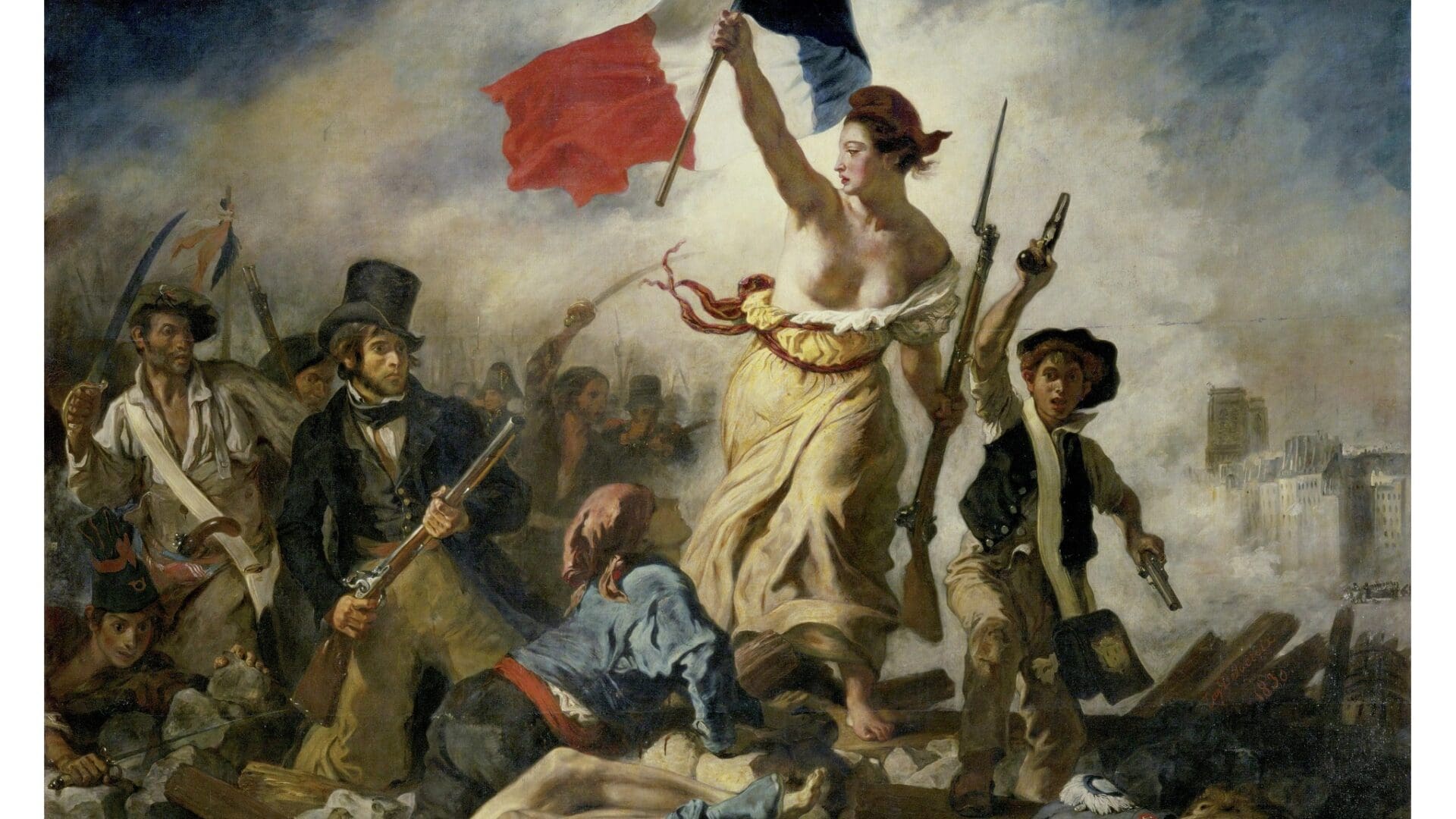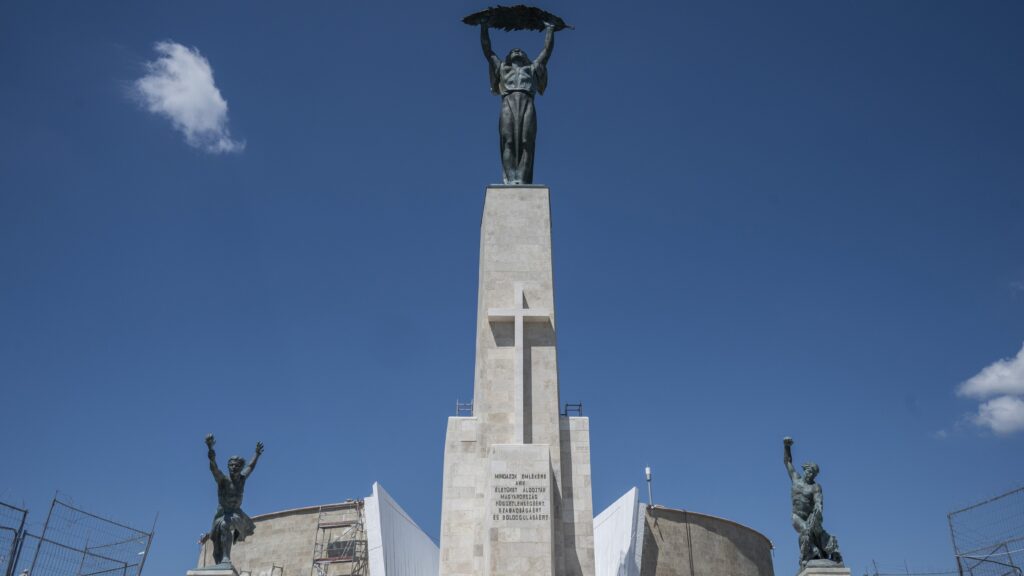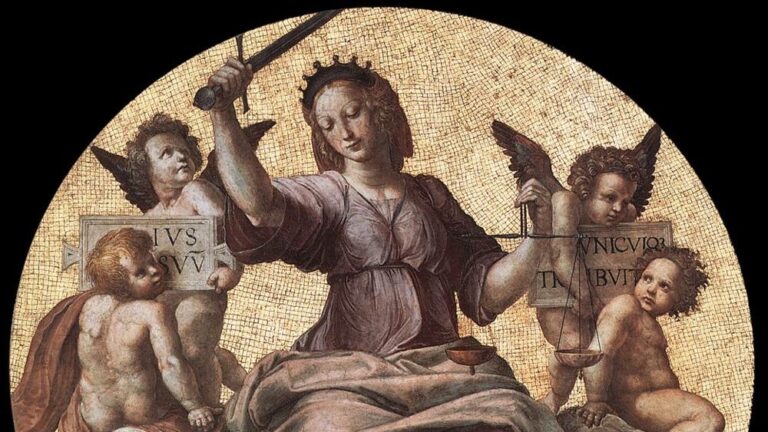Although the terms ‘liberal’ and ‘democratic’ are commonly associated with each other and considered almost inseparable, the roots of liberalism (as well as those of parliamentarism) are not democratic, but rather, aristocratic. Freedom and independence, which are the most important values for liberalism, are also aristocratic in origin.
As Erik von Kuehnelt-Leddihn writes:
‘Liberty is the ideal of aristocracy, just as equality stands for the bourgeoisie and fraternity for the peasantry. One can combine liberty with fraternity, but neither of them with equality.’[1]
How is it possible then that liberalism today is still associated by many people with extreme egalitarianism? And, at the same time, how is it also possible that liberalism, which is above all directed to the defence of freedom, in the eyes of its critics has become a doctrinaire ideology that tries to suppress thoughts which are not considered ‘liberal?’
Philosopher Thomas Molnar, for example, in his work entitled Liberal Hegemony, identifies liberalism as the ‘ideology of civil society’ and subjects its ideals to sharp criticism. As he puts it in the final chapter of his book, although they were once ‘champions’ of liberalism, the ‘cowardly bureaucrats’ nowadays forage the horizon mainly to discover heresy.[2]
If we look at the term liberalism etymologically, then it, first of all, means a strong affirmation of freedom, which is always in conflict with democratic egalitarianism, which, in turn,—invoking the interests of the majority—limits individual freedom. It is not surprising that liberals such as John Stuart Mill were not very enthusiastic democrats. But why has liberalism become an idea today that has retained very little of its original meaning and orientation?
This problem probably stems from the fact that its most important theorists could not grasp the idea of freedom in sufficient depth
and often approached the concept of the Person with superficial thinking. There is no doubt that not many of the authors of early liberalism attributed a qualitative meaning to freedom, and authors such as Mill tended to absolutize it and regard it as a kind of ‘highest good.’ In the Christian and medieval era, freedom was precisely not a hedonistic, but an ascetic virtue, which can be attributed to man only because he was created in the ‘image and likeness’ of God. That is, man undoubtedly has a soul and intellect, which distinguish him from the physical determinations of the animal world, subjugated to instincts. The freedom, that liberals otherwise rightly and correctly emphasize and try to protect against collective and individual tyranny, above all, based on the dignity of the human person. However, the idea of the Person is above all a theological concept. In European thought, it first referred to the ‘Persons in God,’ and it is difficult to abstract it from its religious content and meaning.
Atheistic or agnostic liberalism—i.e. the forms of liberalism that this system of ideas eventually becomes—do not attach sufficient importance to this, and believe that the concept of the person can be maintained on a material basis, as if man is not the ‘image and likeness’ of God then really nothing more than a ‘bunch of atoms.’ And it really doesn’t make much sense to ascribe any kind of dignity or higher freedom to a ‘bunch of atoms’: in a universe based on materialistic, impersonal material laws, there is no sense of freedom or any kind of law that would protect one ‘bunch of atoms’ against another.
At the same time, the reality of the Person also includes the principle of the qualitative difference between Persons. Liberalism correctly asserts that the Person cannot be subjected to any individual or state tyranny.
On the other hand, the Person is always more than the atomistically conceived individual. The Persons are essentially incommensurable with each other—therefore they cannot come together in one general will without their individuality being damaged. The theory of volonté général (Rousseau) replaces the excellence of each person with the generality of the will of the majority. This principle is always at odds with freedom, while emphasizing the individual, not the personal.
At this point, equality and freedom come into conflict with each other—and this point was also correctly seen by those early liberals who criticized the democratic idea.
The ‘tyranny of the majority’ is a well-known phrase in political philosophy, which originated from Alexis de Tocqueville. Tocqueville was—despite his famous book on American democracy—clearly not a democrat, and yet he was a very ardent supporter of liberty. ‘I have a passionate love for liberty, law, and respect for rights…I am neither of the revolutionary party nor of the conservative...Liberty is my foremost passion.’ He also wrote, commenting on the ‘social state’ of Americans: ‘[B]ut, one also finds in the human heart a depraved taste for equality, which reduces men to preferring equality in servitude to inequality in freedom’[3]
Most classical liberals also rejected the doctrine that the will of the people is the sole source of political legitimacy. In John Stuart Mill’s words:
‘We know that the will of the people, even of the numerical majority, must, in the end, be supreme, for as Burke says, it would be monstrous that any power should exist capable of permanently defying it: but in spite of that, the test of what is right in politics is not the will of the people, but the good of the people, and our object is, not to compel but to persuade the people to impose, for the sake of their own good, some restraints on the immediate and unlimited exercise of their own will.’[4]
The principle of the Person is not democratic or egalitarian by its origin, but an aristocratic principle based on differences. Aristocratic, but not in the sense of an aristocratic birth status, but in the sense of natural aristocracy, that arises from the incomparable excellence of each person, the inherently aristocratic nature of the spirit, and the soul’s striving for self-transcendence. The early liberals, who lived in the age of the decline of the European nobility, also observed this correctly, but they showed enormous naivety when they thought that the natural aristoi would appear ‘by itself’, if the boundaries and limitations of feudalism were erased, and this judicial act simply make everyone ‘noble.’
If we examine events and processes more closely, we can see the exact opposite in many cases: instead of ‘everyone becoming a noble’, the average level of sophistication—in terms of taste, behaviour, general culture and even intelligence—began to fall rapidly, and this fall is still hasn’t stopped today either, in fact, getting worse.
The relationship between freedom and order also often remains unclear in liberalism.
According to liberals, the will is free. However, the freedom of the will can be directed toward ‘Good’ in the Platonic sense (or in the Christian sense: God), at destruction as well as at construction. Since the degree of individual autonomy in (classical) liberalism is not a function of the individual's ability to intervene in the management of the state,—this is the thesis of democracy—we can talk about an absolute rule that is liberal in character; as well as a government based on a majority rule, which brutally suppresses the individual, or persecutes unpopular minorities. If we want to clarify the relationship between freedom and order, the problem of political freedom should not be discussed in the sense of freedom from something or for something, as interpreted many of the liberals, such as Isaiah Berlin[5] and partly, as Benjamin Constant.[6] If the essence of political freedom can be grasped based on the principle of ‘autonomy’, this is not something that anyone can claim.
Actually, freedom in this sense is not a function of a political-social ideology, but a requirement to be maintained regardless of the actual form of the political system, according to which the individual must enjoy the greatest reasonable freedom. Meanwhile, its private sphere and private life should remain free from the intrusion of an external and collective force.
The term ‘liberal’ was undoubtedly originally associated with the aristocratic spirit of freedom and generosity (in Latin: liberalitas), which, recognizing a natural hierarchy among individual beings, finds diversity welcome and does not desire to make things equal in all circumstances. Since many of the theoreticians of liberalism did not take this principle into account, it can be derived that most liberals strongly oppose the principle of authority.
In agnostic and atheistic liberalism, this anti-authoritarianism is further transformed: man can only be free if he denies God as an objective limitation and no longer recognizes any form of authority. Relying only on its own ‘private’ reason, this vehemently anti-authoritarian liberalism wants to get rid of all limitations branded as ‘irrational’: thus, liberalism in the Western world, through agnosticism and atheism, has finally come to merge into
a tendency that takes pleasure in abolishing all kinds of limitations and differences while—unconsciously—making way for unlimited state power,
political demagoguery, and ideological-practical materialism. As its critics claim, contemporary liberalism can therefore not be called a true guardian of freedom, or a positive counterpoint to any real or potential tyranny. Naturally, what ‘true liberalism’ is can always be the subject of conflicting opinions, just like the nature of ‘true democracy’ or ‘true conservatism’. Understanding the question in this way, however, always leads to conceptual relativism.
Actually defining what ‘true’ freedom is—that is, the actual purpose and meaning of the idea of liberalism—is not an easy task at all: this is why there have been several, even contradictory, philosophical attempts to define the essence of freedom throughout the history of philosophy.
What can be the actual meaning of liberalism in today's world, and can we, as conservatives, still attribute any value to it?
If we ask this question today, the need for freedom primarily refers to independence from the industrial-bureaucratic complex and its intrusive apparatus, from the propaganda of several state-owned mediums, as well as several NGOs. Freedom for conservatives refers to an ‘external force’ that does not interfere (or does so only slightly) in the life of the individual. At the same time—if we want to avoid a theory being exhausted in mere denial—we also need to highlight the ‘positive’ side of freedom. This sense of freedom, however, also presupposes that there are some kind of regulations, perhaps ‘dogmas’, and thus the Person, paradoxically, can only become truly free by observing and implementing these principles.
Read next:
[1] Erik von Kuehnelt-Leddihn, Liberty or Equality. The challenge of our time. Caldwell, The Caxton Printers, 1952. 48-49.
[2] Tamás Molnár, A liberális hegemónia (Liberal Hegemony). Budapest, Gondolat, 102.
[3] Alexis de Tocqueville, Democracy in America, Chicago, University of Chicago, 2000, 52.
[4] John Stuart Mill, ‘Pledges 2’, in. Collected Works, 502. cited by John Skorpusky ‘The liberal critique of democracy’. In: Bell, D.A. (ed.), The East Asian Challenge for Democracy: Political Meritocracy in Comparative Perspective, Cambridge, Cambridge University Press, 2003, 116-137.
[5] Berlin famously interpreted freedom as freedom for something and freedom from something. See Isaiah Berlin, The two concepts of Liberty.[6] According to Constant's well-known distinction, the freedom of the ancients and the moderns do not refer to the same thing: the freedom of the ancients was collective freedom, and the freedom of the moderns is individual freedom (Benjamin Constant, A régiek és a modernek szabadsága (The Freedom of the Ancients and the Moderns), Budapest, Atlantisz, 1997, 180-188).








